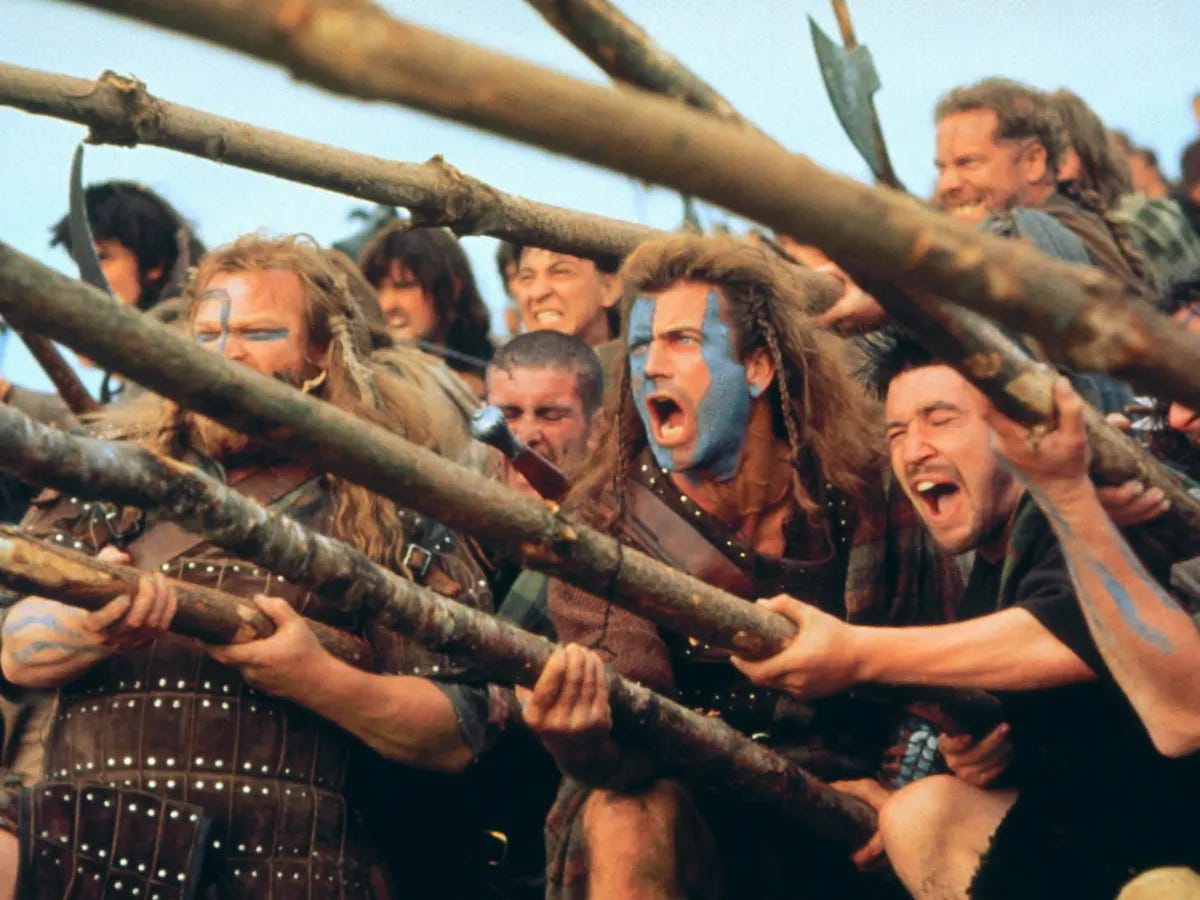“Once I felt so weak that the only thing I could think to do was start running.” Sebastian Junger
All of the following lines are from Freedom by Sebastian Junger, until I indicate otherwise.
We walked around four hundred miles and most nights we were the only people who knew where we were. There are many definitions of freedom but surely that is one of them.
Lots of things that look like freedom when you’re with other people are just a form of exile when you’re alone. (page 17)
The freedom that comes from being feared is tempting for people who have suffered that fear themselves.
Dominant men take up as much room as possible. They have significantly higher testosterone levels than nondominant men, and much lower levels of the stress hormone cortisol - both associated with disease resistance and leadership. Testosterone is correlated so strongly with both aggression and wide facial structures in men that it’s possible to predict roughly how much time a hockey player will spend in the penalty box during a season by measuring the width of his face. Winning a fight or athletic competition boosts testosterone levels which in turn make dominant men more likely to win the next one.
Unconscious submission is devastating to a person’s chances of winning a fight. Boxers who show a smile, a classic appeasement cue, pre-fight are less likely to win than men who only frown.
“The only time to communicate weakness is to manipulate. Only the weak mind adds suffering to circumstance.”
One of God’s great oversights is that dogs don’t live as long as men, I thought. And that men don’t move as fast as dogs.
If you can’t run a mile with all your gear you’ve got too much gear.
A survey of hundreds of NA tribes found 90% of ones with no large food surpluses had no political inequality. Social stratification was found in almost 90% of tribes that did stockpile food or monopolize its production.
How do ordinary people protect their freedom in the face of such highly centralized state control?
The Great Virtue of hunter-gatherer societies is the leaders don’t have more rights, only more prestige. Unlike monarchs they can’t leverage their power to gain access to wealth and resources, and they can’t skirt the rules and laws that govern everybody else.
Kings were expected to lead their armies in person, putting them in the midst of hack slaughter that spares no one. That could qualify as rough egalitarianism but the last european monarch to die in combat was King James IV of Scotland who invaded England in 1513 with 30k soldiers and clergy. He saw a third of his force annihilated before he was cut down. 30 years earlier King Richard III of England had been unhorsed and killed at Bosworth Field. After those battles, the kingly virtue of fighting alongside noblemen and commoners began to die out, and monarchs were content to order other men to do their fighting and dying for them.
Democracy insists leaders be accountable. Leaders who aren’t willing to make sacrifices aren’t leaders. They’re opportunists. Opportunists rarely have common good in mind. Easy to spot; they lie, blame others for failures and are unapologetic cowards. Wealthy nations can survive with that kind of leadership but insurgencies and uprisings probably won’t. In those groups, leaders, like their followers, are prepared to die for the cause.
Otherwise.
I’ve always been drawn to insurgencies. Underdogs. The resistance. Code Name Kids Next Door.
Sebastian points out that these are egalitarian tribes with the most badass leaders. Me, obviously.
One man’s freedom is another man’s struggle.
Freedom is a vision.
Freedom is a hallucination.
Absolute freedom is an illusion.
Freedom, for me, is the absence of lies and dissonance.
wrote about freedom in the pathless path. He referenced the work of Eric Fromm. “[The] Positive version of freedom is more than the freedom to act, it’s the “realization of the individual's potential, together with his ability to live actively and spontaneously.”“Those freed from oppression but unable to develop a positive version of freedom were destined to be filled with feelings of separateness and anxiety.”
This is true. I lived through it. I’ve tasted the confusion of freedom. It’s like Junger said, “Lots of things that look like freedom [a bunch of money] when you’re with other people are just a form of exile when you’re alone.”
Your money is worthless if there’s no people to share it with.
Exile lives among the deepest of human fears.
So too, should too much freedom at the wrong time.
Freedom is the ability to choose your problems. If you don’t choose, then you don’t have freedom.




